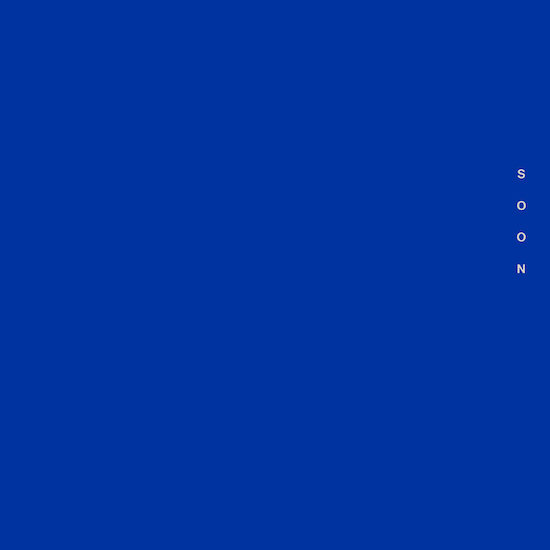Soon is an improv duo formed by guitarist Liú Mottes and multi-instrumentalist Jochem van Tol, which currently operates between Berlin and Amsterdam. Theirs is a story that is typical of many musicians in the Netherlands, one of playing separately in a multitude of bands and projects before meeting up and tentatively finding common ground through a series of jams and file swapping. Both have roots in what has, over the last decade or so, been called the Dutch underground: a network of interesting, sometimes inspiring musicians who benefitted in some form from the last hurrah of squat living, low rent travelling and occasionally hitting bullseye with a local arts fund grant.
Both Mottes and Van Tol are also experienced players, ones whose talents have maybe slipped under the radar for too long in their native land. Soon, then, is a vehicle that gives both a chance to upend local opinions; though their debut is an international-sounding record that has a much wider appeal. It has very little in common, certainly in spirit, with the sometimes derivative Dutch “indie” and performance scenes they have worked in.
Soon often feels like a conversation made music. Both face each other when playing live, often keeping eye contact throughout each track. In a live setting this set-up can be charming to witness, but also hard to watch after a while, given the energy is mainly being transmitted between the two players. On record, though, this sort of interaction pays dividends as the sound is intense and committed, and revealing very little slack. Better, this intensity has created the sort of widescreen, filmic music that would grace a flick from the mid 1970s. You can imagine Nixon, Hunt, Liddy and Haldeman all furtively bugging each other to the tracks on here.
The record can also be a very soothing listen, especially in the early passages. The brilliant opener, the nine-minute ‘Winter Swells’, boasts the same atonal, “deep-space” synth hums as found on Cope and Thighpaulsandra’s glorious old Queen Elizabeth Vagina LP. Alongside the almost neural quality of some of the electronics, it is a track of infinite patience and no little presence. What sounds like phased guitar starts to collapse inwards and eventually amass to sound like a lot of processed trumpets, the underlying melody clashing against these slightly off-key gasps of noise like a buoy against the hull of a boat. It’s difficult to follow that magnificent opener, but the gentle ‘Twilight’ does its best. Now and again it feels like a slow country dance, given a makeover as pastoral, 1970s electronica. Broadcast and Valerie and Her Week of Wonders come to mind at times, or a melancholic chord progression that maybe just nods to side two of Low.
Just as everything is nicely grooving, the other side of the record’s character makes itself manifest: we are shaken out of any reverie by the tough ‘Wollemi Pine’, which is a traditional stand-off between drums and guitar, the latter taking the skins on with some clanging down strokes. Emboldened by ‘Wollemi Pine’’s approach, the following tracks use different, less harmonious chord structures and arrangements to change the atmosphere: first there is the introspective ‘Pool’, the melody held aloft by some cute strumming and a ghostly synth hiss. The double-tracking on Mottes’ vocals sets up the brilliantly “mauve” ‘Minimal’, which feels luscious and poisonous simultaneously. The follow up, ‘Cleopatra’, is an edgy sonic surveillance tape given shape and increasing gravitas by some sparse, dry arrangements and individual notes from synth and guitar that act as pathways through the aural murk. When the wobble effect on Mottes’ voice makes itself known it’s a brilliant moment, allowing a further increase in pressure.
When ‘T’iju T’iju’ – a strange electronic racket – sets up the beautiful single, ‘Komodo Dragon’, there is a definite clearing of the atmosphere. ‘Komodo Dragon’ sounds like its title, a resolute and powerful entity that likes to show off. Yet it also works as a navigation element for the closing passages of the LP, the tail-off suggests we’re in clearer waters, as proved with last track ‘Paper Wave’, merely the sound of a wave crashing on a beach, but a great closing of the curtain and something that assures the listener that they have reached solid ground. Overall this is a very affecting and rewarding listen as many elements reveal themselves only over time. Whether it gets the plaudits it deserves is another matter, but certainly it is one of the finer releases in The Netherlands this year.


